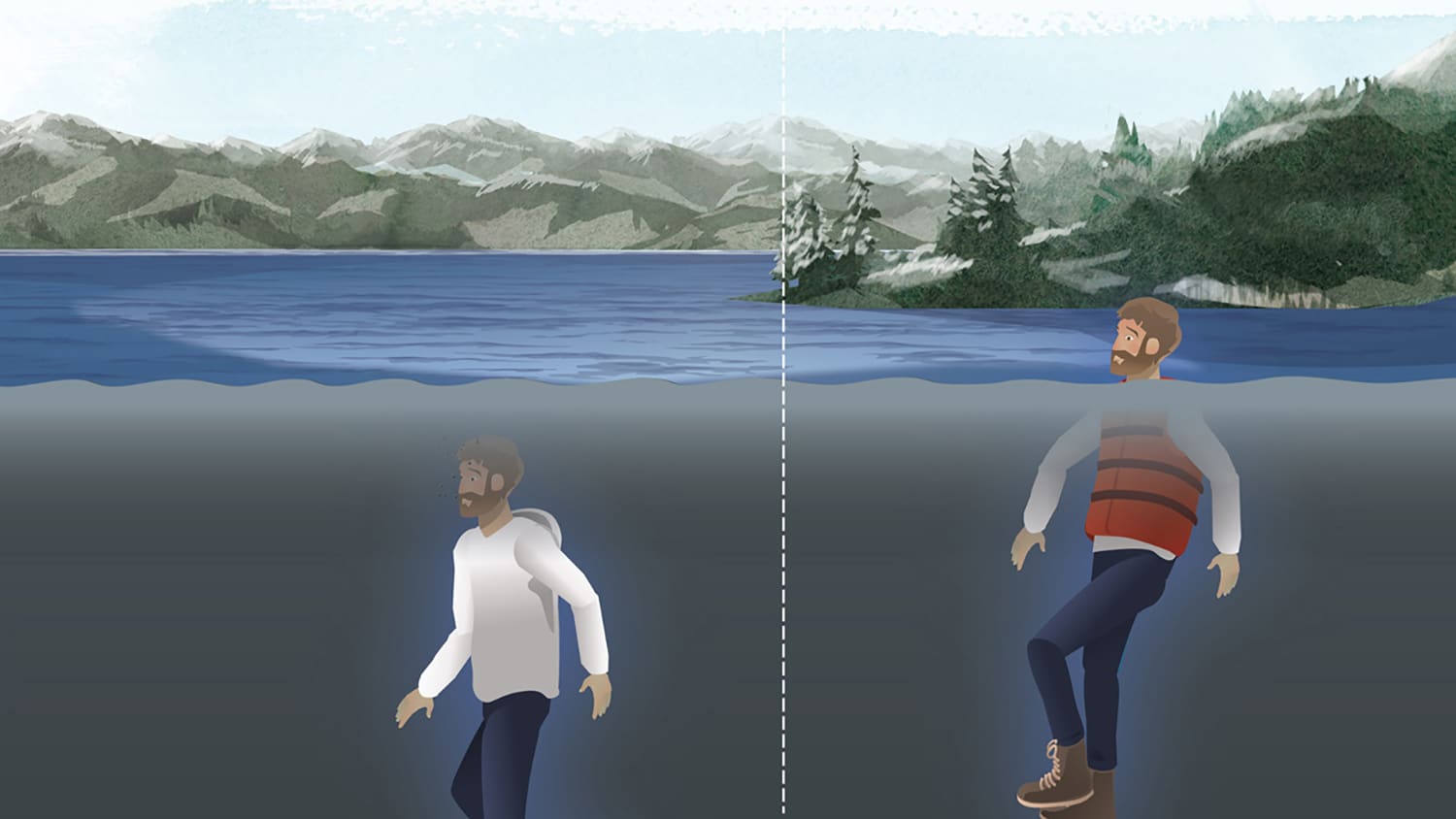Stage 4 of Cold Water Immersion. Long-term immersion hypothermia sets in after 30 minutes at a rate depending on water temperature clothing body type and your behavior in the water.

Cold Water Immersion Stages Ace Boater
The effects on your body after you are pulled from the water can include the following.

. Your heart is cold and cannot pump cold blood effectively to maintain blood pressure. Hypothermia eventually leads to loss of consciousness and death with or without drowning. Cold Water Immersion Prevention.
You can experience collapse of arterial blood. The 4 stages of cold water immersion include the following. There are four stages of cold water immersion.
Once rescued people are still. At this stage regardless of your body type size insulation of clothing acclimatization and other factors your bodys core temperature gets dangerously low. Cold water robs the body of heat 25 times faster than cold air.
Once rescued after you have. Hypothermia eventually leads to loss of consciousness and death with or without drowning. For this reason a person suffering from hypothermia needs to receive medical attention as soon as possible following rescue from the water.
Loss of hydrostatic pressure from the water causes a sudden drop inblood pressure. In this stage a drop in blood pressure caused by hypothermia can cause a person to become unconscious or stop breathing even several hours after the rescue. Post-immersion collapse occurs during or after rescue.
The human body cools much faster in cold water than it does in cold air. They greatly increase your risk of inhaling water and drowning. A drop in blood pressure resulting from hypothermia may cause the person to become unconscious or even stop breathing even several hours after the rescue.
Hypothermia occurs when your body loses heat faster than it produces it cooling the organs in the core of your body. Stage 1 Initial immersion responses or cold shock. Most victims never make it to this stage since 75 of individuals succumb and die in the earlier stages of cold water immersion.
Stage 1 - Cold shock responses such as shivering and shortness of breath. Cold shock is the first threat to your survival. Once rescued after you have been immersed in cold water you are still in danger from collapse of arterial blood pressure leading to cardiac arrest.
Stages of Cold-Water Immersion. Stage 2 - Swimming failure due to incapacitation of limb function. Post-rescue Collapse A drop in blood pressure resulting from hypothermia may cause the person to become unconscious or even stop breathing even several hours after the rescue.
Stage 4 - Post-rescue collapse. Cold water pulls heat from the body and the bodys core temperature drops. There are four stages of cold water immersion.
This is what happens in the last two stages. Stage 2 Short-term immersion or swimming failure. Hypothermia can eventually lead to loss of consciousness and death with or without drowning.
A person has about one hour before they become unconscious from hypothermia. Cold Water Survival Hypothermia You May Not Know As Much As You Think. What happens during Stage 3 of cold water immersion.
Stage 4 of Cold Water Immersion. Stages 3 and 4 of Cold Water Immersion - Boat Ed. What happens during Stage 4 of cold water immersion.
A person has about 10-minutes of meaningful movement to get help and get out of the water. Post-immersion circum-rescue collapse occurs during or after rescue. A person has one minute to adjust to the cold shock response dont panic get control of breathing dont gasp.
Stage 4 post-immersion collapse of cold water immersion can occur even after being rescued. One of the primary concerns for CWI practitioners is remaining ever-aware of the 4 stages of cold water immersion to ensure safe cold-plunging. Post-immersion collapse occurs during or after rescue.
You can experience collapse of arterial blood. Hypothermia occurs when your body loses heat faster than it produces it cooling the organs in the core of your body. Sudden immersion into cold water can cause immediate involuntary gasping for air panic and vertigo as well as create changes in your bodys blood pressure and.
Learn about the four stages of cold water immersion what happens during each of them and why. Stage 4 post-immersion collapse of cold water immersion can occur even after being rescued. Stage 4 of cold water immersion Post-immersion collapse occurs during or after rescue.
This is why it is critical to receive immediate medical attention after cold water immersion. What happens during Stage 4 of cold water immersion. This can cause heart or brain failure.
These are four separate threats to your life and they affect you in different ways but the first three have one thing in common. This eventually leads to loss of consciousness and death. Your survival chances are greatly lessened at this stage.
Hypothermia occurs when the body loses heat faster than it produces cooling vital organs. Hypothermia eventually leads to loss of consciousness and death with or without drowning. The stages of immersion in cold water associated with particular risk were first outlined by Golden and Hervey 1 and are directly related to the cooling of these tissues.
Stage 3 Long-term immersion or hypothermia. Stage 4 of cold water immersion is called post-rescue collapse. Four stages of cold-water immersion leading to incapacitation and death.
The human body cools much faster in cold water than it does in cold air. Once rescued after you have. Stage 3 or long-term immersion hypothermia happens after 30 minutes or more.
See answer 1 Best Answer. Stage 4 Post-rescue collapse.

Stages 3 And 4 Of Cold Water Immersion

Hypothermia And Cold Water Immserion Boatsmart Boatsmart Knowledgebase
0 Comments